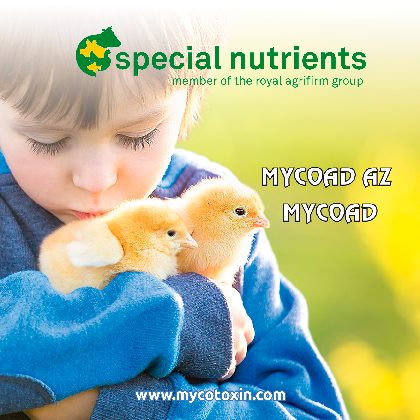15 Feb 2025
As the world moves toward more responsible and sustainable food production, Latin America finds itself at a crucial crossroads—one that presents both challenges and immense opportunities. With its vast biodiversity, fertile lands, and deep agricultural heritage, the region is uniquely positioned to lead a transformation in animal production, setting a new global standard for sustainability, efficiency, and environmental responsibility.
The growing global demand for high-quality, ethically produced animal products presents a clear incentive for producers to rethink traditional approaches. Consumers, governments, and international organizations are increasingly calling for food systems that prioritize sustainability, reduce emissions, and minimize environmental impact. Latin America has the potential to move beyond its traditional role as a commodity supplier and instead become a leader in the production of differentiated, high-value animal products.
To fully realize this potential, it is essential to embrace innovation, integrate science-based strategies, and foster collaboration across the agricultural and scientific communities. The future of Latin American animal production is not just about producing more—it is about producing better, with a focus on efficiency, animal welfare, and environmental stewardship.
Latin America’s Natural Advantage in Sustainable Production
Latin America is home to some of the most diverse ecosystems on the planet, ranging from vast grasslands and rainforests to fertile valleys and coastal regions. This natural wealth offers a strategic advantage in developing sustainable and resource-efficient production systems.


By leveraging this biodiversity, producers can implement innovative and climate-smart agricultural practices that enhance efficiency and resilience. This includes:
- Regenerative grazing systems that restore soil health and reduce carbon footprints.
- Integration of crop and livestock systems to maximize land use and nutrient cycling.
- Optimized feeding strategies that reduce reliance on non-renewable resources while enhancing productivity.
However, achieving sustainability is not without its challenges. The industry must navigate issues such as climate variability, water use efficiency, and land management, ensuring that economic growth does not come at the cost of long-term environmental degradation. For Latin America to truly become a model of responsible animal production, it is imperative to balance economic interests with ecological integrity.
The Role of Nutrition in Driving Sustainable Livestock Production
One of the most effective pathways to sustainability lies in animal nutrition, a fundamental pillar of livestock production. Proper nutritional strategies not only enhance productivity but also play a key role in reducing waste, optimizing feed efficiency, and lowering the environmental impact of animal agriculture.
Science-Driven Feeding Strategies
Nutritionists and producers must work together to rethink feeding strategies by:
- Enhancing feed conversion efficiency, ensuring that animals extract the maximum nutritional value from their diets while reducing resource waste.
- Exploring alternative feed ingredients that decrease reliance on conventional grains and soy while maintaining nutritional balance.
- Reducing methane emissions through dietary modifications, such as incorporating functional additives and optimizing fiber digestion.
- Minimizing nitrogen and phosphorus excretion, preventing nutrient runoff and water contamination.
Incorporating science-backed nutritional solutions ensures that animals grow efficiently, remain healthy, and contribute to a more sustainable food system.
Phytogenics: A Natural Pathway to Enhanced Sustainability
Among the many innovative solutions emerging in animal nutrition, phytogenics—plant-derived compounds such as essential oils, flavonoids, and saponins—are gaining increasing attention. These bioactive substances have been shown to improve digestibility, immune function, and overall performance, making them valuable tools for sustainable livestock production.
Key Benefits of Phytogenics in Animal Nutrition
Research has demonstrated that phytogenics offer a range of benefits, including:
- Improved feed efficiency, allowing animals to convert nutrients more effectively.
- Enhanced gut health and microbiome balance, reducing the risk of disease and dependency on antibiotics.
- Mitigation of oxidative stress, supporting overall animal well-being.
- Reduction of methane emissions, contributing to a lower environmental footprint.
As natural alternatives to synthetic additives, phytogenics align with consumer preferences for antibiotic-free and environmentally responsible products. Their role in supporting digestive health and metabolic function makes them key players in the transition toward sustainable animal agriculture.
Knowledge: The Most Powerful Tool for Transformation
In this rapidly evolving landscape, knowledge and education are more crucial than ever. The success of sustainable animal production hinges on the ability of producers, nutritionists, veterinarians, and policymakers to stay informed and adapt to new challenges.
By fostering a culture of continuous learning and scientific inquiry, we empower professionals across the industry to:
- Adopt evidence-based practices that enhance productivity while preserving ecosystems.
- Develop innovative solutions to improve feed efficiency and animal welfare.
- Bridge the gap between research and real-world application, ensuring that scientific advancements translate into practical benefits.
Sustainability is not just a technological challenge—it is also a cultural and educational shift that requires active engagement from all stakeholders in the agricultural value chain.
A Call to Action: Building a Resilient and Responsible Future
The future of animal production in Latin America is at a turning point. The decisions made today will shape the industry for generations to come. By embracing sustainable practices, leveraging scientific advancements, and prioritizing environmental responsibility, the region can lead the way toward a more equitable and resilient food system.
Governments, researchers, and producers must work together to:
- Invest in research and development, accelerating the adoption of sustainable solutions.
- Implement policies that support environmentally responsible agriculture, ensuring long-term viability.
- Encourage knowledge exchange and capacity building, equipping farmers and industry professionals with the tools needed for success.
Consumers also play a critical role. By supporting ethically produced, sustainable animal products, they drive demand for responsible production practices and contribute to a market shift toward sustainability.
Final Thoughts: The Road Ahead
Latin America has the natural resources, expertise, and ambition to transform its agricultural sector into a global model of sustainability and excellence. However, achieving this vision requires bold action, scientific innovation, and a shared commitment to progress.
The time to act is now. The agricultural sector must embrace change, rethink traditional approaches, and work toward a future where productivity and sustainability go hand in hand.
Together, we can build an animal production system that nourishes the world while preserving the planet for future generations.
The path to a better future begins with informed choices—let’s move forward, together.
